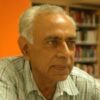Diversities in Modern Times
TRANSCEND MEMBERS, 25 Sep 2023
Dr. Ravi P. Bhatia – TRANSCEND Media Service
The world we are familiar with, has different types of diversities — linguistics, social, economic, cultural, and scientific, etc. Considering these and other related differences, perhaps the economic diversities are fairly quite pronounced and tragic. There are some rich countries and communities that have all that makes life comfortable, prosperous. Does it make life peaceful also? The answer would be an emphatic No.
This is because the rich are confronted with opposition — some clear and blatant, some subdued and silent. Of course this opposition is met with stoicism and even open return violence.
The wealthy people know how to live with these economic differences and people’s behaviour. If the opposition is silent and subdued, the rich have an attitude of We don’t care . If the economic disparities lead to rebellion and a degree of violence, the rich have resources to put down the opposition — to crush it.
The rich don’t have just wealth and resources they have means to tolerate violence — up to a degree. Beyond that, they generally hit back with more violence to quell the opposition.
Poor people and communities are familiar with this behaviour and the scenario and so they try to accommodate and tolerate the large gap between the rich with their wealth and resources and their own down to earth lives. They have learnt to live with the differences — economic and social. They may sometimes blame God for this type of existence and hope that God will be kind to them in future.
However, ordinary people — not rich or just so-so money wise, are connected with the wealthy resourceful people in different ways. If the rich own industries, or big shops, ordinary people work in them. Even otherwise, ordinary (poor men) work as drivers of rich people’s cars or trucks. Women generally work as maids in rich people’s home — they may look after the children as baby sitters or work in people’s kitchens . Thus the interaction between communities and people continues harmoniously in various ways.
All that I have described above is for the good of people — wealthy as well as not so rich and resourceful. People have learnt to live with the economic differences. Problems arise when some people from the latter category try to rebel against this status quo.
They feel that that the rich are rich by exploiting the ordinary not-rich category of people. This may be true in some cases when this category of people — generally youngsters and those that are politically motivated try to act against this situation by open rebellion or silent opposition. They feel that the rich have become so by exploiting the ordinary (poor) people. Thus, they act in clear opposition of the people they feel are exploiting them and garnering their resources.
This type of situation is present not only in many countries of Asia, South Africa, but to an extent in America also. In USA which is considered the richest country in the world, also has large pockets of not so rich people. There is poverty although it is not so blatant and blunt as in some Asian, African countries. How the country USA, is handling the economic situation is quite commendable. One does not see open poverty and exploitation of people but it is there if one observes carefully. The government there, and political, economic experts have evolved a situation where the rich continue to be rich and resourceful without pushing the not so rich people to extreme degradation— social and economic.
One can argue as some experts do, that such a situation is tragic and may lead to open opposition and violence. However, the USA is doing well in different spheres and there is political and economic stability there.
One could argue that other countries of Asia, Africa and Latin America could follow the American model and they could also improve their social, economic status. To an extent this may be correct but one cannot duplicate the American model wholly. Different political experiments are taking place in several countries with different results — some successful, some not so.
The world is evolving in different ways — economically, socially, politically. One cannot feel that only a particular model will succeed completely and reduce violence and exploitation.
Let us try different models and hope that some of them will improve the world and usher in prosperity, goodwill and peace in the world.
______________________________________________
 Dr Ravi P Bhatia is a member of the TRANSCEND Network for Peace Development Environment, an educationist, Gandhian scholar and peace researcher. Retired professor, Delhi University. His new book, A Garland of Ideas—Gandhian, Religious, Educational, Environmental was published recently in Delhi. ravipbhatia@gmail.com
Dr Ravi P Bhatia is a member of the TRANSCEND Network for Peace Development Environment, an educationist, Gandhian scholar and peace researcher. Retired professor, Delhi University. His new book, A Garland of Ideas—Gandhian, Religious, Educational, Environmental was published recently in Delhi. ravipbhatia@gmail.com
This article originally appeared on Transcend Media Service (TMS) on 25 Sep 2023.
Anticopyright: Editorials and articles originated on TMS may be freely reprinted, disseminated, translated and used as background material, provided an acknowledgement and link to the source, TMS: Diversities in Modern Times, is included. Thank you.
If you enjoyed this article, please donate to TMS to join the growing list of TMS Supporters.

This work is licensed under a CC BY-NC 4.0 License.
I do agree with the author that there cannot be a
universal model of development. Each country’s
economic development can come only through home grown policies based on local realities. Gone are days of economic regimentation in today’s free world.
Dr. Bhatia’s style of writing is thoroughly enjoyable. It is easy flowing, natural and lucid.
Looking forward to more thought-provoking articles from the author.
Deep Mathur,Delhi